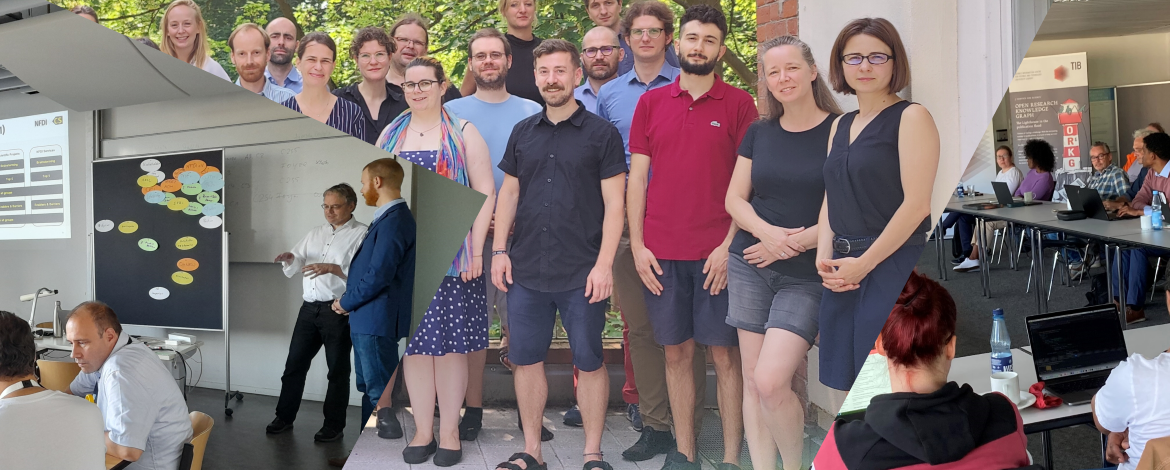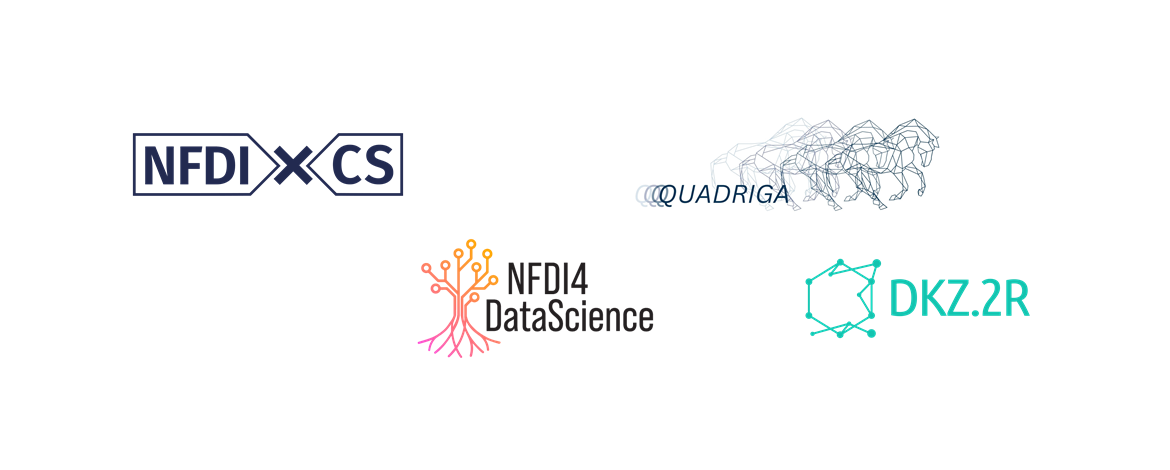Workshop "Research Data and Software Competencies"
Kurzbeschreibung
Anlässlich der Themenwoche "Digitale Kompetenzen in der Wissenschaft" der Volkswagen Stiftung wird der Workshop „Research Data and Software Competencies“ (neben drei weiteren Workshops) ausgerichtet und von Personen aus NFDIxCS, NFDI4DS, QUADRIGA und DKZ.2R . Dieser Workshop richtet sich an Teilnehmer:innen jeglicher akademischen Stufen mit Fokus auf Datenkompetenzen und Forschungsdaten- und -softwaremanagement. Der Workshop wird auf Englisch durchgeführt und konzentriert sich auf drei Schlüsselbereiche: 1) die Identifizierung wesentlicher Forschungsdaten- und Softwarekompetenzen, die in bestehenden (Daten- und Softwarekompetenz-)Rahmenwerken, Programmen und Curricula übersehen oder unterrepräsentiert sind, 2) das Herausarbeiten bewährter Praktiken für die Vermittlung dieser Kompetenzen an Forscher, unter Berücksichtigung ihrer spezifischen Bedürfnisse und Einschränkungen; 3) die gemeinschaftliche Entwicklung von Strategien zur Erstellung von Bildungsressourcen und Schulungsprogrammen. Das Event umfasst außerdem eine Diskussion mit den Teilnehmern der drei anderen Workshops zu übergreifenden Fragen (die von der Volkswagen Stiftung noch nicht bekannt gegeben wurden). Das Workshop-Format umfasst kurze Expertenvorträge, gefolgt von Kleingruppensitzungen, bei denen die Ergebnisse der Gruppenarbeit in einem größeren Forum geteilt und diskutiert werden.
Leitfragen (in englisch)
1. What are the essential research data and software competencies that are often overlooked (e.g., in existing (data and software literacy) frameworks, programs, and curricula)?
Suggestions for the sub-questions:
1.1. How can we define and operationalize research data and software competencies to ensure a comprehensive coverage across various disciplines?
1.2. What unique considerations arise when dealing with other digital research artifacts (e.g., workflows, protocols, models) that are neither traditional data nor software?
1.3. What core data and software competencies should be considered essential for all researchers, regardless of their primary discipline or level of technical expertise? How can the competencies accommodate various roles, backgrounds and disciplines of the target groups?
Expected output: A list of concrete competencies (or approaches/frameworks that we can use) that are currently underrepresented in existing frameworks.
2. How can we effectively teach research data and software competencies to researchers, considering their specific needs and constraints?
Suggestions for the sub-questions:
2.1. How can we address the diverse needs of researchers from different disciplines, considering that software requirements may vary significantly across fields?
2.2. What are effective ways to assess and certify the competencies that are meaningful in academic and research contexts?
Expected output: create a list of discipline-specific use cases/examples for data/software literacy training
3. How can we effectively collaborate to develop and possibly share educational resources and training programs?
Suggestions for the sub-questions:
3.1. What existing (educational) resources and training programs from each participating project is already shared, can be shared or can be adapted for wider use? How can we leverage the strengths of each participating project?
3.2. What are the potential challenges in collaborative resource development (e.g., intellectual property, differing institutional policies. licenses), and how can we address them?
3.3. How can we establish quality standards for collaboratively developed educational resources and training programs?
3.4. How can we measure the impact and effectiveness of collaboratively developed educational resources and training programs?
Expected output: Action plan for collaboration among participating projects and institutions (including an inventory / best practices of existing educational resources and training programs from all participating projects)
Kontakt
Haben Sie noch Fragen, Feedback oder Anregungen zu diesem Workshop, schreiben Sie gerne an rdsculistserv.dfnpde.


